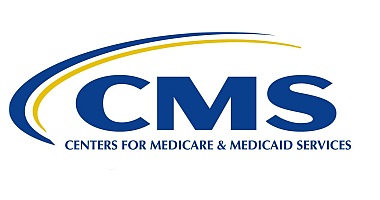Recently, the Centers for Medicare & Medicaid Services (CMS) released their Contract Year (CY) 2020 Medicare Advantage and Part D proposed rule, a wide-ranging proposal that expands access to telehealth in Medicare Advantage, updates the methodology for calculating Medicare Advantage Star Ratings, and makes policy updates to address program integrity.
In the proposed rule, CMS included an assortment of proposals that impact Medicare Advantage and Medicare Part D plans in CY2020. However, what was missing from the proposed rule was any action on President Trump’s plan for lower drug prices. Instead, it was addressed with a brief statement, “CMS plans to release a proposed Medicare rule in the near future to further the President’s agenda of reducing drug costs.” Stay tuned to Policy & Medicine for that portion, as it was released just a few days after the main CY2020 proposal.
Telehealth Expansion
Included in the proposal were looser restrictions on telehealth benefits in the Medicare Advantage plan. The proposal implements the part of the Bipartisan Budget Act of 2018 that permits telehealth benefits to be treated as basic benefits when Medicare Advantage plans submit bids to CMS and also places the plans in the position to determine which benefits are clinically appropriate for telehealth service. It would also allow plans to offer telehealth benefits to enrollees regardless of geography and would remove requirements that enrollees access telehealth services at a healthcare facility. The proposal would retain plans’ abilities to offer additional telehealth services not as part of the basic benefit package. CMS is specifically soliciting comments on how to implement the requirement that services offered as telehealth options be accessible by in-person means as well.
While Medicare Advantage plans have always been able to offer more telehealth services than are currently payable under original Medicare through supplemental benefits, this change in how such additional telehealth benefits are financed (that is, accounted for in payments to plans) makes it more likely that Medicare Advantage plans will offer them and that more enrollees will be able to use the benefits.
Star Ratings
The proposed rule would also impose changes to Star Ratings, including: imposing a cap on rating changes to reduce the effect of year-to-year outliers when determining plan star ratings; creating a new policy to account for “extreme and uncontrollable circumstances” when determining star ratings; and modifying the Medicare Plan Finder’s pricing tool to account for both the magnitude and frequency of price changes.
Dual Eligible Special Needs Plans (D-SNPs)
Under the proposed rule, which mirrors requirements found in the Bipartisan Budget Act, D-SNPs would be required to integrate with Medicaid long-term services and supports (LTSS), behavioral health services, or both by having the relevant state Medicaid agency make a capitated payment to the plan or by complying with a minimum set of requirements for LTSS. The rule would also require that one organization be responsible for grievances and appeals for D-SNPs rather than bifurcating the process between Medicare and Medicaid.
Part D Plan Access to Claims Data
As required by the Bipartisan Budget Act of 2018, the proposed rule would allow Part D plans to request that the Secretary provide in an electronic format on a periodic basis standardized extracts of Medicare claims data about its plan enrollees. Such extracts would contain a subset of Medicare Parts A and B claims data, any may be used for: (1) optimizing therapeutic outcomes through improved medication use; (2) improving care coordination; and (3) other purposes as determined appropriate by the Secretary.
“President Trump is committed to strengthening Medicare, and an increasing number of seniors are voting with their feet and choosing to receive their Medicare benefits through private plans in Medicare Advantage. Today’s proposed changes would give Medicare Advantage plans more flexibility to innovate in response to patients’ needs,” said CMS Administrator Seema Verma. “I am especially excited about proposed changes to allow additional telehealth benefits, which will promote access to care in a more convenient and cost-effective manner for patients.”
CMS will accept comments through December 31, 2018. Comments may be submitted electronically through the e-Regulation website here.

